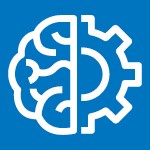Student Initiatives Helping Refugees to Study at Swiss Universities

Up to ten percent of the refugees in Switzerland have a background in higher education. Facing many more obstacles than the average student, such as limited financial support and not verified diplomas, fugitives with academic background find it very hard, if not impossible, to continue their education at a Swiss university or university of applied sciences. To change this, a group of motivated students founded ‘Offener Hörsaal’, a student association at the University of Basel.
Since its foundation three years ago, the project ‘Offener Hörsaal‘ (Open Auditorium) is enabling basic access to the University of Basel for interested and motivated refugees by paying for lectures and a language course. This support allows refugees to visit the university as auditors. Whilst the project’s overall aim is to promote integration, one of the main goals of our association is to convey the importance of state-funded support: It lies within the responsibility of the cantons, the federal government, and the universities to provide adequate and sensible education for the people they are entrusted with.
The project ‘Offener Hörsaal’ does its very best to support refugees mastering additional challenges on their way to a higher education. One of the most frequent obstacles that we encounter in our daily work are transportation fees. Since refugees cannot choose their place of residence and are frequently accommodated outside of Basel, expensive travel fees often hinder their access to education.
Another significant obstacle for refugees is proving that they have successfully passed secondary education with a diploma that is equivalent to the Swiss ‘Matura’. Such an official and recognized diploma is mandatory to be admitted to a Swiss university. Depending on a refugee’s country of origin and the certificate they brought along, it is often not possible to verify if they have acquired the necessary requirements.
Financial Burden too High for Refugees
One possible solution is to take an ECUS (Examen Complémentaire des Hautes Écoles Suisses) exam, a supplementary test for students who need a diploma for being admitted to a Swiss university. The underlying idea is testing the general knowledge required for accessing tertiary education. In theory, refugees and migrants that pass this exam are admitted to a university. In practice, however, the exam fees are extremely high (around 1000 CHF) and the subsidized preparation courses provided by the cantons were unfortunately abolished in 2011. The subsidization of these courses is essential because the exam is very difficult and the currently provided private preparation courses are even more expensive (12’900 CHF and additional courses 3000 and 7000 CHF). This financial burden makes it practically impossible for refugees to pass the exam and to formally gain access to the university.
One of the main causes of all these obstacles for refugees pursuing a higher education is that access to education varies a lot across the cantons. Also, the universities differ in their overall approach, as well as in their application processes and entrance requirements. The higher education system is highly fragmented and lacks coherence. Refugees cannot choose their place of residence and often live outside the cities where higher education is provided. We, therefore, request financing the travel expenses for the purpose of education and that this is harmonized throughout Switzerland.
Moreover, there is a lack of interaction between the administrations of different universities when it comes to the integration of highly skilled refugees. Several projects comparable to the ‘Open Auditorium’ managed by volunteering students have been founded, but only a few of them are supported by their university. It is in the interest of the volunteers to be in regular contact with other volunteer projects. However, they rarely have the opportunity to exchange knowledge with similar associations at other Swiss universities. Still, at the moment, the Swiss Student Union makes an effort in improving the connections between the different initiatives.
Main Contact Point for Migrants
Right now, we are the main contact point for refugees and migrants at the University of Basel. We demand that the cantons mandate all universities and universities of applied sciences to establish a contact point that is specialized in supporting refugees and migrants. Furthermore, it is crucial to provide information on the available paths to higher education in a cost-efficient way. The federal state or the cantons should be responsible for the organization of such an overview. The goal is that this service is equally available in all parts of Switzerland. In order to achieve educational equality among the cantons, it is crucial to harmonise the access to education across the country and especially allow people to individually continue pursuing and building upon their already acquired education.
As we have demonstrated above, we are currently taking on tasks that the federal government, the cantons, and the universities are technically responsible for. Since three years we have been and still are the main contact point for refugees and migrants. It is unacceptable that education is regularly called one of the decisive criteria for measuring integration in Switzerland when at the same time, so little effort is made to provide support in the field of higher education. It should not matter how small the number of affected people is, education is a basic human right and should be accessible for everybody.
Educational institutions should not content themselves with providing that little support to a project aiming at overcoming these challenges. We, the volunteering students, lack the necessary experience in tackling these challenges and we think it actually is one of the core duties of the universities themselves to provide information and support for tackling these issues. These problems will keep Switzerland busy for some time to come. Unless we implement the changes proposed here, they will not disappear.
The authors Aylin Laubscher, Aurelia Rohrmann, Anna Wolf, and Simone Keller are members of “Offener Hörsaal” and students at the University of Basel.


